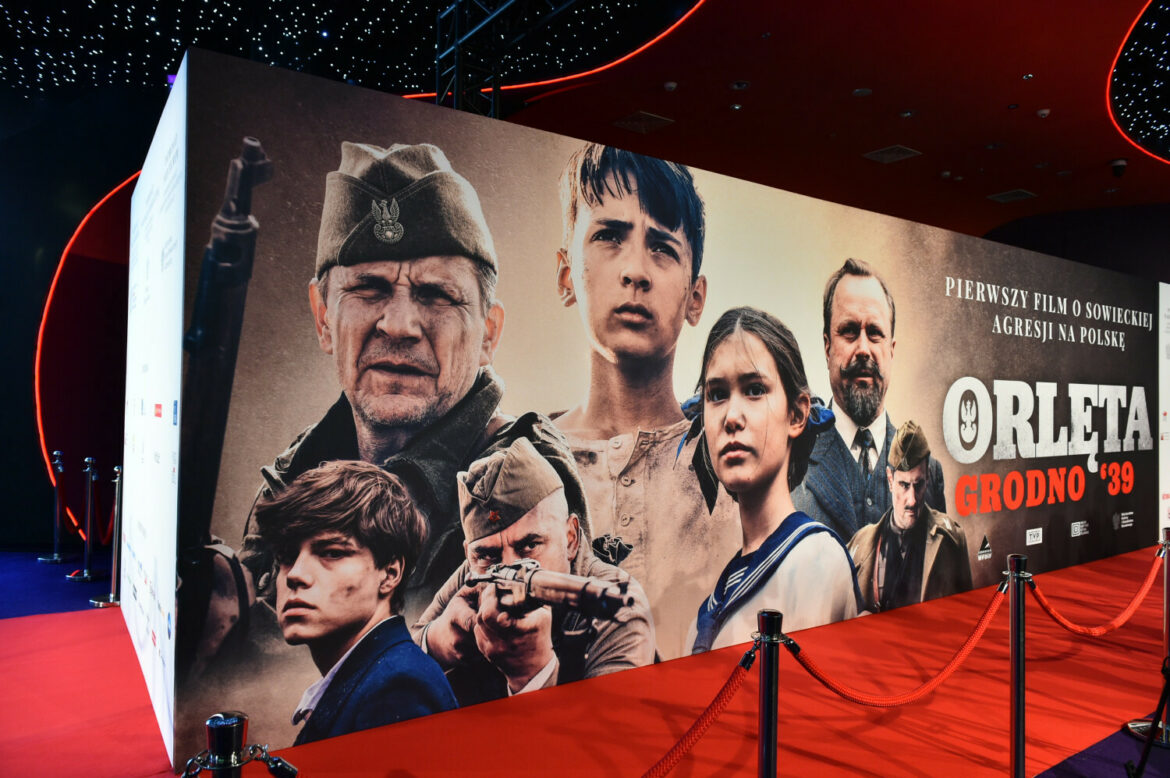The film “Orlęta. Grodno ’39’, directed by Krzysztof Lukaszewicz will reach the Polish cinemas on 9th of September. The picture by the Documentary and Feature Film Studio in co-production with Polish Television and subsidised by the Ministry of Culture and National Heritage is the first film production about the Soviet army’s aggression against Poland in September 1939.
“On the one hand, it is a film about growing up and as well as fighting exclusion. On the other, it is also a film about the strength of Polishness. Besides, it is a story about all the people in the Polish East who fought against the Soviets,” said the film’s director Krzysztof Łukaszewicz at the premiere screening.
“Orlęta. Grodno ’39” is a dramatic portrayal of the war against the Soviets seen through the eyes of a twelve-year-old boy, Leon. On the day the school year begins, 1 September 1939, his school building is bombed by German planes. „For Leon, Tadek, Ewelina and thousands of Polish children, the beginning of the war will become a school of accelerated adolescence, a confrontation with the dramatic history written by adults”, announces the Polish Television.
On 17 September 1939, under Soviet-German agreements, the Red Army entered Poland. On 20 September it planned to occupy Grodno. The city’s defenders began a hopeless, heroic struggle. The few military units were supported by the civilian population, above all by schoolchildren. It is children and young people who heroically defended the city, becoming victims of the extraordinary cruelty of the occupiers.
The film was shot in Poznań, Radom, Warsaw, Konstancin, Modlin and Skierniewice. Krzysztof Łukaszewicz is responsible for directing and writing the film. The music was composed by Michał Lorenc and the cinematography was shot by Tomasz Wójcik.
The roles of the young protagonists were played by, among others: Feliks Matecki (the role of Leon Rotman), Wit Czernecki, Almira Nawrot and Filip Gurłacz. On screen they are partnered by Jowita Budnik, Łukasz Lewandowski, Leszek Lichota, Andrzej Mastalerz, Antoni Pawlicki and Bartłomiej Topa.
Adrian Andrzejewski





